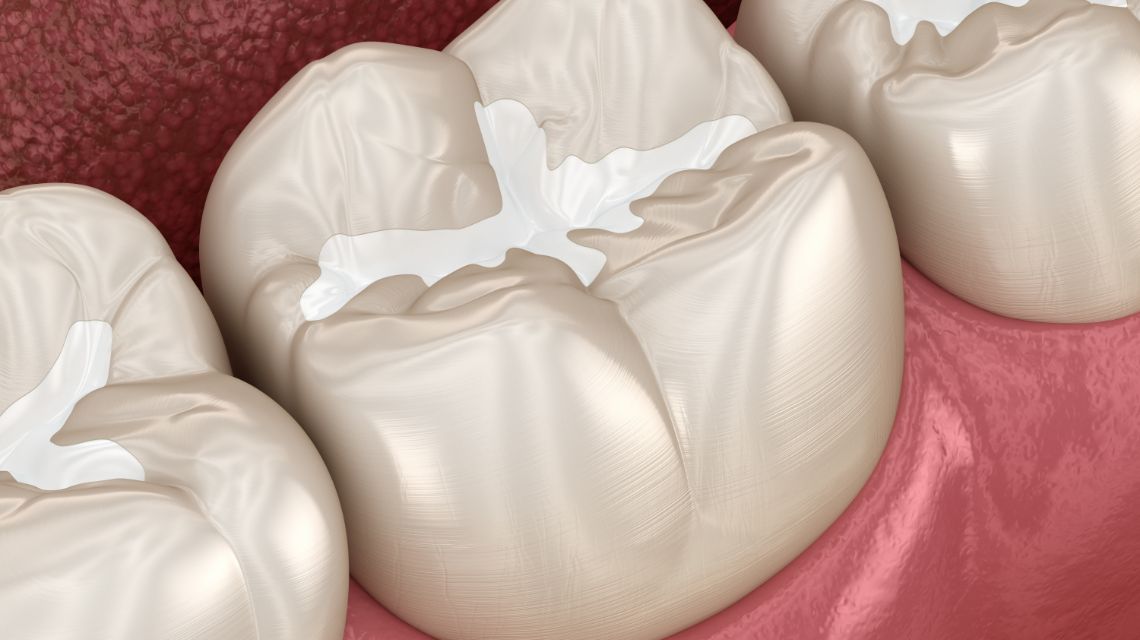
What are Pit and Fissure Sealants?
Pit and Fissure Sealants dental technique involves the application of sealing material to the top surface of teeth to prevent bacterial infections, which cause tooth decay.
The Pit and Fissure Sealants procedure is highly effective in preventing dental caries (tooth decay). It is used as a preventive treatment to improve oral hygiene and dental health.
To know more about the procedure, consult the best dental doctor in Madurai, or search “dental specialist near me.”
Who qualifies for the procedure?
Individuals with a risk of developing any one or more of the following dental conditions may require the treatment
- Weak or less dense tooth enamel.
- Deeper pits (small hollows) and fissures (grooves) on the back of the tooth that cause cavities.
- Children or adults with a higher risk of developing dental caries.
You can reach out to a dental clinic near you for dental-related queries.
Why is the procedure recommended?
The purpose of recommending a pit and fissure sealant procedure varies from individual to individual. Generally, it is recommended to prevent dental caries in children and adolescents.
What are the benefits of the procedure?
There are several benefits. The most common ones include:
- It makes it easier to clean and brush hard-to-reach areas of the mouth/teeth.
- Minimises food getting trapped in the deep fissures.
- Inhibits/limits the chances of bacterial infection.
- Guards and acts as a protective coating on the pits and fissures of the teeth.
- The procedure is safe, non-invasive, quick, and painless.
- Sealant treatment can last for several years. One can continue with their regular oral health routine immediately after the treatment.
Visit a dental specialist near you to opt for the best dental procedures to prevent your risk of developing oral cavities.
What are the risks or complications of the procedure?
The pit and fissure sealant procedure is relatively safe and effective in preventing oral cavities. However, it may pose certain complications for a few. Some of these include:
- Contamination may result from either sealing materials or saliva.
- Improper sealing may lead to air entrapment within the teeth.
- Poor surface preparation can affect the treatment outcomes.
- Leakages in sealing may contribute to oral infections.
Conclusion
Dental pit and fissure sealants have been popularly used as a comprehensive dental procedure for preventing and arresting tooth decay in patients worldwide. It makes it easier to maintain dental and oral hygiene. However, a dental specialist should regularly see sealed surfaces to avoid leakage and other complications.
Request an appointment at Apollo Dental, Mysore Call 1800 1020 288 to book an appointment OR click on this link
For an experienced dental specialist, it typically takes only a few minutes.
The following steps are involved: Tooth preparation: Involves cleaning of tooth surface Tooth isolation: Rubber dams or cotton rolls are used to hold and isolate the affected tooth. Acid etching: It is performed to improve the bonding of sealing material onto the affected tooth. Rinsing and drying of teeth: This step is conducted to remove excess etchants. Sealant application: Finally, the dental pits and fissures are carefully sealed.
Pit and fissure sealant acts as a protective coating and covers the areas prone to bacterial infections.


















































